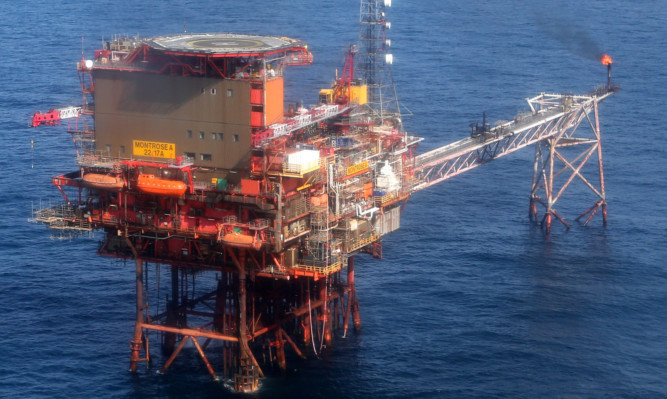Oil prices will rise again by 2018 and reinvigorate economic activity in the North Sea, according to a billionaire Scottish Government adviser.
Jim McColl, who sits on the Scottish Government’s Council of Economic Advisers, told Holyrood’s Economy Committee his own Clyde Blowers’ engineering investment firm is “holding out quite well” in the economically-depressed North Sea and he predicted the downturn will reverse in the next two years.
Increased oil and gas production contributed to the 0.7% rise in the UK economy announced yesterday but this has yet to feed through to the Scottish onshore economy, leaving Scotland’s GDP lagging behind at just 0.1% growth.
Fellow economic adviser Anton Muscatelli, principal of Glasgow University, confirmed Scotland’s economy would have contracted last quarter if it was not for publicly-funded construction activity.
Labour wealth creation spokesman Lewis Macdonald asked for an assessment of North Sea activity following 65,000 job losses across the UK, with more than half in Scotland.
He said: “I don’t think anyone in the sector expects prices to go up any time soon.”
Mr McColl said: “In our own business, the North Sea is actually holding out quite well and the Middle East is holding up quite well.
“The Gulf of Mexico is the hardest hit but the reason this is all happening just now is that we have an oversupply of oil.
“Demand is lower than supply and we have an oversupply because the Americans did all this fracking and the Middle East, the Opec countries, are ramping up their output to keep their market share.
“The fracking in the US has turned down, the jack-up rigs in the Gulf of Mexico are down at 20% now and all the indications are that when we work through this oversupply just now and the surplus that we have, demand is going to overtake supply around 2017, maybe 2018, and the price is going to go back up again and activities are going to start again.
“So it is a huge shock in the short term, but it is still a viable area in the North Sea and prices will go up.”
Mr Muscatelli said the onshore element of the oil and gas industry “might have depressed this particular quarter” in Scotland.
“The UK’s figures were boosted by increased production in oil and gas, but this is attributed to the UK as opposed to being attributed to Scotland,” he said.
“You really need to dig below these figures to see what is actually happening.
“One thing which was, I gather, particularly strong in these figures, which helped at least maintain them at that level, is construction which is fuelled by public investment.”
SNP MSP Gordon MacDonald said: “We are expecting to see cuts to Scotland’s budget, so what impact do you think that will have on the economic performance efforts if we are so dependent on Scottish construction to hold our percentage up?”
Mr Muscatelli said: “Obviously if there are going to be cuts in capital spending to the public sector, then that feeds through to the Scottish block grant and that will have an impact on growth.”
Lewis Macdonald said: “In fact, if it weren’t for Scottish construction activity, the Scottish economy would have contracted between April and June, is that your analysis as well?”
Mr Muscatelli said: “Arithmetically that is clearly the case, but I need to stress that different sectoral elements go up and down, so you can’t just look at one set of figures and draw conclusions.”
